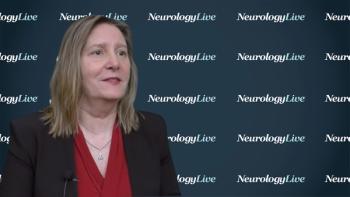
The Professor in UCLA's Department of Neurology and Director of the UCLA MS Program stressed the importance of basing research on clinical observations, understanding them in the lab, then designing novel clincal trials.

The Professor in UCLA's Department of Neurology and Director of the UCLA MS Program stressed the importance of basing research on clinical observations, understanding them in the lab, then designing novel clincal trials.

Survey respondents expressed willingness to participate in a randomized trial to evaluate the benefit of acute internal carotid stenting in patients undergoing endovascular thrombectomy.

The MEK 1/2 inhibitor was previously granted an orphan drug designation by the FDA in February 2018 and resulted in partial responses in 72% of patients in the phase 2 SPRINT trial.

Despite known teratogenicity risks, many women of childbearing age with epilepsy are prescribed valproate, topiramate, and phenytoin.
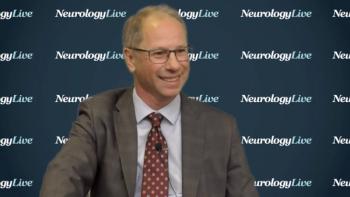
The neurologist at Cleveland Clinic Mellen MS Center spoke about the issues in multiple sclerosis that need to be addressed.

Your patient is a former linebacker with recently diagnosed amyotrophic lateral sclerosis, who asks if football injuries caused his disease. What will you tell him?

The professor of neurology at Harvard Medical School discussed differentiating pediatric MS from other CNS disorders, as well as the process of treating and managing these patients.
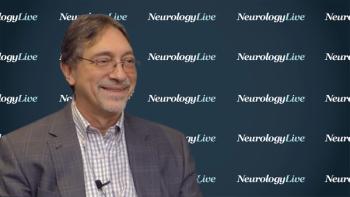
The Senior Vice President for Research and Training at Kessler Foundation discussed the results of the SUNBEAM trial, which indicated that ozanimod resulted in sustained improvement in cognitive processing speed, supporting its efficacy in relapsing MS.

Experts say that while CBD and THC may have potential in multiple sclerosis and epilepsy, research on the endocannabinoid system is in its infancy—and the literature isn’t perfect.

Neurology News Network for the week of March 30, 2019.

The EMD Serono product was approved based on data which displayed a significant decrease in the number of relapses experienced by patients with MS who had ≥1 relapse in the previous year, compared to placebo.
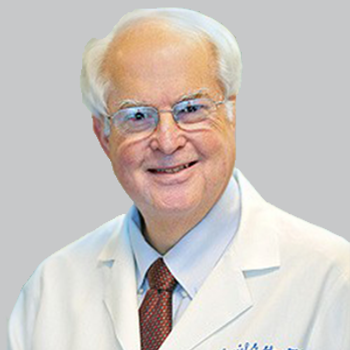
The study author, a pediatric neurologist at Baylor College of Medicine and director of the Blue Bird Circle Rett Center at Texas Children’s Hospital, spoke about the investigational Rett syndrome treatment’s potential going forward.

The device, also cleared to treat anxiety and depression, was launched at the Anxiety and Depression Conference in Chicago and will be available in the United States starting at $695.

The multiple sclerosis specialist at the Corinne Goldsmith Dickinson Center for MS at Mount Sinai spoke about improving a patients' quality of life through symptom management.

The neurologist at Cleveland Clinic’s Mellen Center provided his insight into the clinical evidence for the selective sphingosine 1-phosphate receptor modulator.
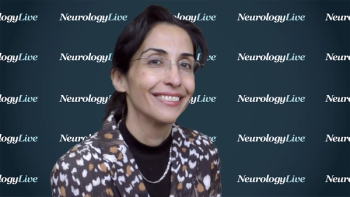
The immunology expert from the University of Sherbrooke shared her insight about where she sees the future of MS research headed, and the need to focus attention on the body’s innate immune response.
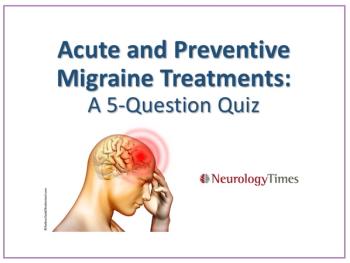
Take this brief quiz to test your knowledge of recent recommendations from the American Headache Society for the prevention and acute management of migraine.

The professor of neurology at the University of Colorado spoke in-depth about the treatment landscape, the biggest unmet need, and some of the challenges of research in progressive MS.
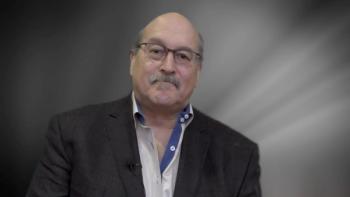
The director of the multiple sclerosis research unit at Ottawa Hospital spoke about the results of BENEFIT 15 that support early intervention of interferon beta-1b treatment at or shortly after CIS.
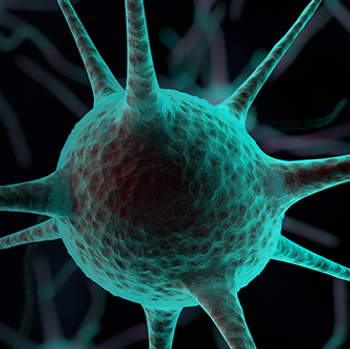
With the lack of a gold standard diagnostic test, a study has shown through latent class analysis that cerebrospinal fluid immunoglobulin G may be a practical tool for determining the onset of MS in patients, particularly those who tested negative under the 2005 and 2010 McDonald criteria.

Of the 5 syndrome-specific efficacy measurements, trofinetide showed statistical benefits for patients with Rett syndrome on the Rett Syndrome Behavior Questionnaire, Clinical Global Impression Scale-Improvement, and the RTT Clinician Domain Specific Concerns-Visual Analog Scale.

Implementing evidence-based practices consistent with the AAN Headache Quality Measures has the potential to improve the quality of care in this patient population, however, additional study is required to determine if better process performance produces better outcomes.

Could the patient's symptoms be linked to her diet?

Topline data showed that the novel oxybate candidate demonstrated significant differences compared to placebo in the change in the weekly number of cataplexy attacks and the change in Epworth Sleepiness Scale score, the primary and secondary end points, respectively.

The associate group medical director and clinical science leader for the IONIS/Roche HTT Rx program at Roche/Genentech neuroscience spoke about the study design of GENERATION HD1 and the potential impact of RG6042 as a treatment for Huntington disease.

The novel longitudinal model utilized 4 variables—the presence of seizures, the number of seizures, the number of adverse events, and if treatment was altered—and was ultimately more predictive than a standard Cox model.

Marketed as Mayzent, the selective sphingosine 1-phosphate receptor modulator is the first treatment for patients with active secondary progressive multiple sclerosis in almost 15 years.

Treatment with AVP-786 in TRIAD-1 showed a significant improvement on the primary endpoint on the Cohen-Mansfield Agitation Inventory for 1 of the 2 doses being evaluated.

Celgene is supporting its new drug application for the S1P receptor modulator with data from the RADIANCE and SUNBEAM phase 3 trials in MS.

The findings from a secondary post hoc analysis suggest that intravenous alteplase is of similar benefit in patients with lacunar infarcts as in those with other stroke subtypes.